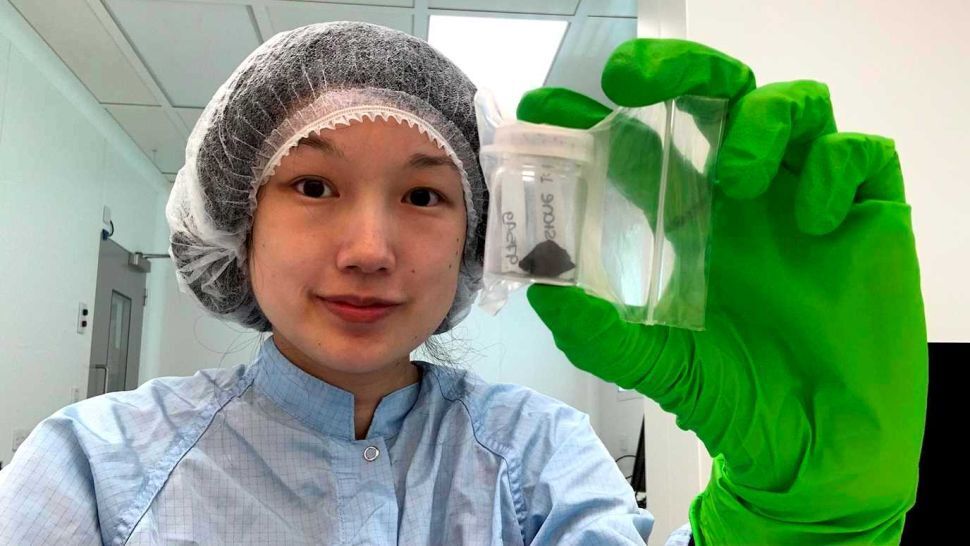19.01.2023
The Winchcombe meteorite contains amino acids that potentially led to life on Earth.

Researcher Queenie Chan holds a sample of the Winchcombe meteorite. (Image credit: Royal Holloway, University of London)
The Winchcombe meteorite, which crashed onto a driveway in England in 2021 and is pristine enough to rival asteroid samples taken directly from space, contains amino acids that potentially led to the spawning of life on Earth.
When scientists analyzed fragments of the meteorite, they found that the asteroid it broke off from once had liquid water and that the meteorite itself contains organic compounds, including amino acids, some of which are the precursors to the proteins that make up DNA and are vital for life on Earth.
"Studying the organic inventory of the Winchcombe meteorite provided us with a window into the past, how simple chemistry kickstarted the origin of life at the birth of our solar system," Queenie Chan, a lecturer in Earth sciences at Royal Holloway, University of London who led the research, said in a statement(opens in new tab).
Chan and her colleagues think the Winchcombe meteorite might belong to an entirely new category of meteorite. Although the space rock is a carbonaceous chondrite — already considered rare — its extraterrestrial organic matter sets it apart. Because the Winchcombe fragments were collected so soon after they fell to Earth, there was almost no chance for terrestrial contamination. Therefore, the organic matter found inside the meteorite is believed to be as it was when the asteroid it came from was hurtling through space.
And there's another characteristic that makes the Winchcombe meteorite a time capsule: evidence of liquid water from the distant past. Among the organic matter the scientists discovered was organic matter that can be dissolved — and probably had been dissolved — in water.
Parts of the meteorite were found to be more chemically altered by water than others. Scientists think water from the space rock's parent asteroid set off chemical reactions that created the meteorite's amino acids, some of which are rare on Earth. Those same types of amino acids eventually formed proteins, from which primitive life-forms would emerge billions of years ago.
What makes the Winchcombe meteorite even more mind-blowing is that its structure should have made it too weak to make it to the surface, the team said.
The Winchcombe meteorite "represents an unusual sample that would not typically survive atmospheric entry," Chan and colleagues wrote in their study.
What, exactly, was needed to kick-start life on Earth remains a mystery. However, organics — especially amino acids — found in meteorites like Winchcombe are taking scientists closer to the origin of living things.
The research is described in a paper published Jan. 9 in the journal Meteoritics & Planetary Science.
Quelle: SC
